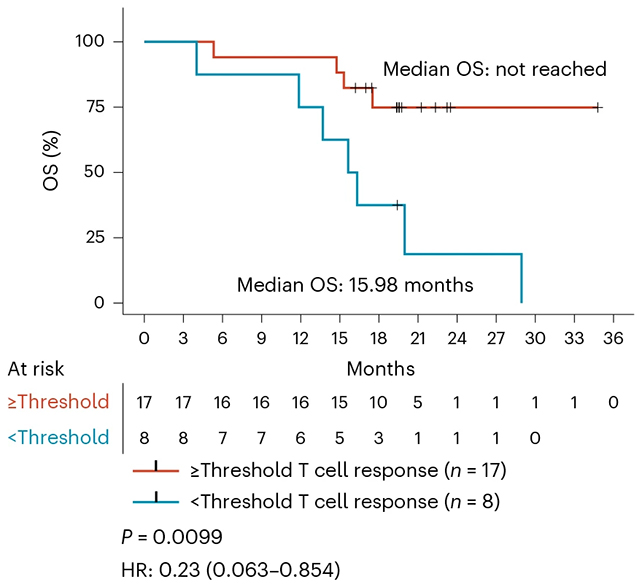Notoriously hard to treat, pancreatic and colorectal cancers each have high recurrence rates in the years following treatment.
A new 'off-the-shelf' vaccine with the catchy name ELI-002 2P offers fresh hope for individuals affected by these deadly diseases following promising outcomes in a recent clinical trial.
Developed by researchers from institutions across the US, the vaccine targets mutations in the KRAS gene. These mutations are linked to 93 percent of pancreatic cancers and 50 percent of colorectal cancers.
Coupled with a delivery system that takes the vaccine's active agent straight to the lymph nodes, the treatment is designed to precisely target parts of the immune system where a variety of immune cells are held.
Related: Vegetarian Diets Can Slash Cancer Risk by Up to 45%, Large Study Finds
"This is an exciting advance for patients with KRAS-driven cancers, particularly pancreatic cancer, where recurrence after standard treatment is almost a given and effective therapies are limited," says medical oncologist Zev Wainberg, from the University of California, Los Angeles.
The vaccine was tested on 20 people recovering from pancreatic cancer and five people recovering from colorectal cancer. They had all had surgery to remove tumors, but in subsequent tests were showing signs that the cancer was likely to return.

After a series of vaccine injections, the results were positive: 84 percent of the individuals had developed mutant-KRAS-specific T cells in their body, ready to fight off mutated products of the gene, while in 24 percent of the participants traces of the tumors were completely cleared.
Of those who developed the strongest immune response, 17 out of the 24, most were still cancer-free by the last follow-up check – a median average of almost 20 months later. For cancers this aggressive, those are all impressive statistics.
"We observed that patients who developed strong immune responses to the vaccine remained disease-free and survived for much longer than expected," says Wainberg.
Across all of the people who participated in the study, there was a median relapse-free survival of 16.33 months and a median overall survival of 28.94 months, both way beyond what's normally expected in cancers like these.
What makes these results even better is that ELI-002 2P is what's known as an 'off-the-shelf' vaccine, which means it's a standard treatment that doesn't need to be personalized for each person (a process which takes time and expertise).
Additional trials and testing will be necessary to fully evaluate the risks and benefits, but considering the high recurrence and mortality rates of pancreatic and colorectal cancers, there's strong evidence here that this vaccine could add years of health to people's lives.
The researchers also saw positive signs of the vaccine training the immune system to fight other types of cancer mutations too, so there's the potential for it to be even more useful in efforts to improve treatments going forward.
"Targeting KRAS has long been considered one of the difficult challenges in cancer therapy," says Wainberg. "This study shows that the ELI-002 2P vaccine can safely and effectively train the immune system to recognize and fight cancer-driving mutations."
"It offers a promising approach to generating precise and durable immune responses without the complexity or cost of fully personalized vaccines."
The research has been published in Nature Medicine.
